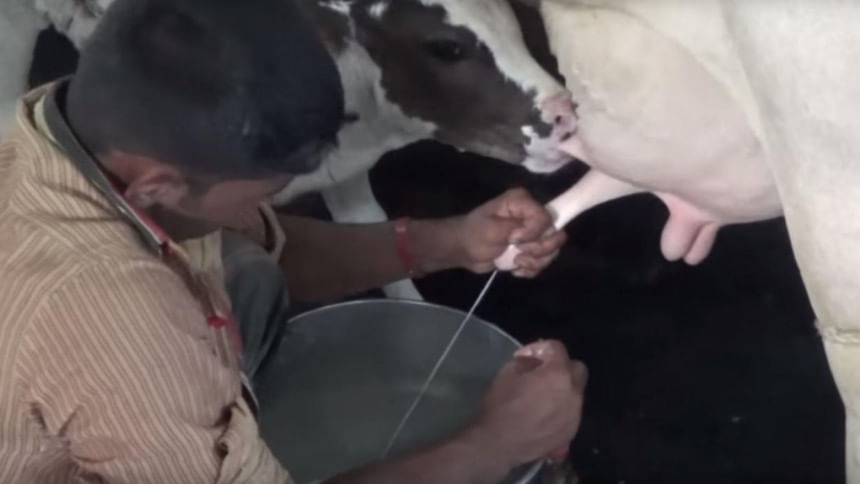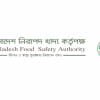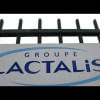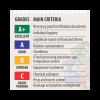Lead, bacteria in milk, curd

Bangladesh Food Safety Authority yesterday submitted a test report to the High Court and said it found harmful elements in most of the 190 samples of raw and packed liquid milk, curd, and fodder.
The samples were tested at the National Food Safety Laboratory.
Of the 96 samples of the raw milk tested, 93 had total plate and coliform counts above the permissible limits, the Food Safety Authority report said, adding that salmonella was found in one sample.
It said according to a chemical analysis, lead was found above acceptable limits in five samples, aflatoxin in three samples, tetracycline in 10 samples, ciprofloxacin in one sample, and pesticide (endosulfan) in nine samples.
The report added that of the 31 (21 local and 10 imported) samples of the packed liquid milk, 17 had the total plate and coliform counts at harmful levels.
Mould was found in 14 local milk samples and coliform in one imported milk sample.
The chemical analysis found harmful levels of aflatoxin in one local milk sample, and tetracycline in six local milk samples and in three imported milk samples.
Among the 33 samples of curds, harmful level of total plate count was found in 17 samples, coliform in six samples, yeast/mould in 17 samples, and lead in one sample, the report mentioned.
The Food Safety Authority said among the 30 samples of fodder, harmful levels of chromium were found in 16 samples, aflatoxin in four samples, tetracycline in 22 samples, enrofloxacin in 26 samples, ciprofloxacin in 30 samples, and pesticide (endosulfan) in two samples.
In the report, the Food Safety Authority said it had formed a 16-member committee to find those behind the adulteration of milk, curd, and fodder.
After receiving the report from Food Safety Authority lawyer Mohammad Faridul Islam, the HC ordered the authority to submit a report on the companies and individuals responsible for the adulteration of milk, curd and fodder to the court by May 15.
The bench of Justice Md Nazrul Islam Talukder and Justice KM Hafizul Alam passed the order during hearing on a suo moto rule issued by it on February 11, Deputy Attorney General AKM Amin Uddin Manik told The Daily Star.
He also said the bench fixed May 15 for passing further orders on this issue.
Meanwhile, Anti-Corruption Commission lawyer Khurshid Alam Khan appealed to the court for adjournment of hearing on the rule for a week as the commission’s assigned lawyer Syed Mamun Mahbub could not appear before it yesterday due to illness.
The HC on February 11 directed the ACC to enquire about the adulteration of milk, curd, and fodder and take legal action against those responsible.
The court also ordered the Food Safety Authority to form a probe committee to identify in three months the individuals and businesses involved in adulteration of dairy products and fodder.
The HC then issued a rule asking the respondents, including chairmen of Food Safety Authority, members of Central Food Safety Management Coordination Committee and chairman of Bangladesh Standards and Testing Institution, to explain why their inaction and failure in preventing adulteration and taking appropriate legal steps against it should not be declared illegal.
The court asked them to show causes as to why the production, carrying, and preservation of adulterated milk, curd, and fodder in shops, departmental stores, and the open market should not be declared illegal.
The rule asked the respondents to explain why they should not be directed to remove those and bring people responsible to book and to prosecute them.
The HC bench came up with the order and rule following reports on adulteration published in The Daily Star, the Prothom Alo, and the Kaler Kantha on February 11.
According to The Daily Star report, a government study found in raw cow milk excessive levels of lead, regular consumption of which is harmful.
Conducted by the National Food Safety Laboratory of the Ministry of Health and Family Welfare, the study also detected high levels of chromium in fodder.
Besides, it found excessive presence of pesticide, antibiotics, and bacteria in raw cow milk, according to The Daily Star report.

 For all latest news, follow The Daily Star's Google News channel.
For all latest news, follow The Daily Star's Google News channel. 








Comments